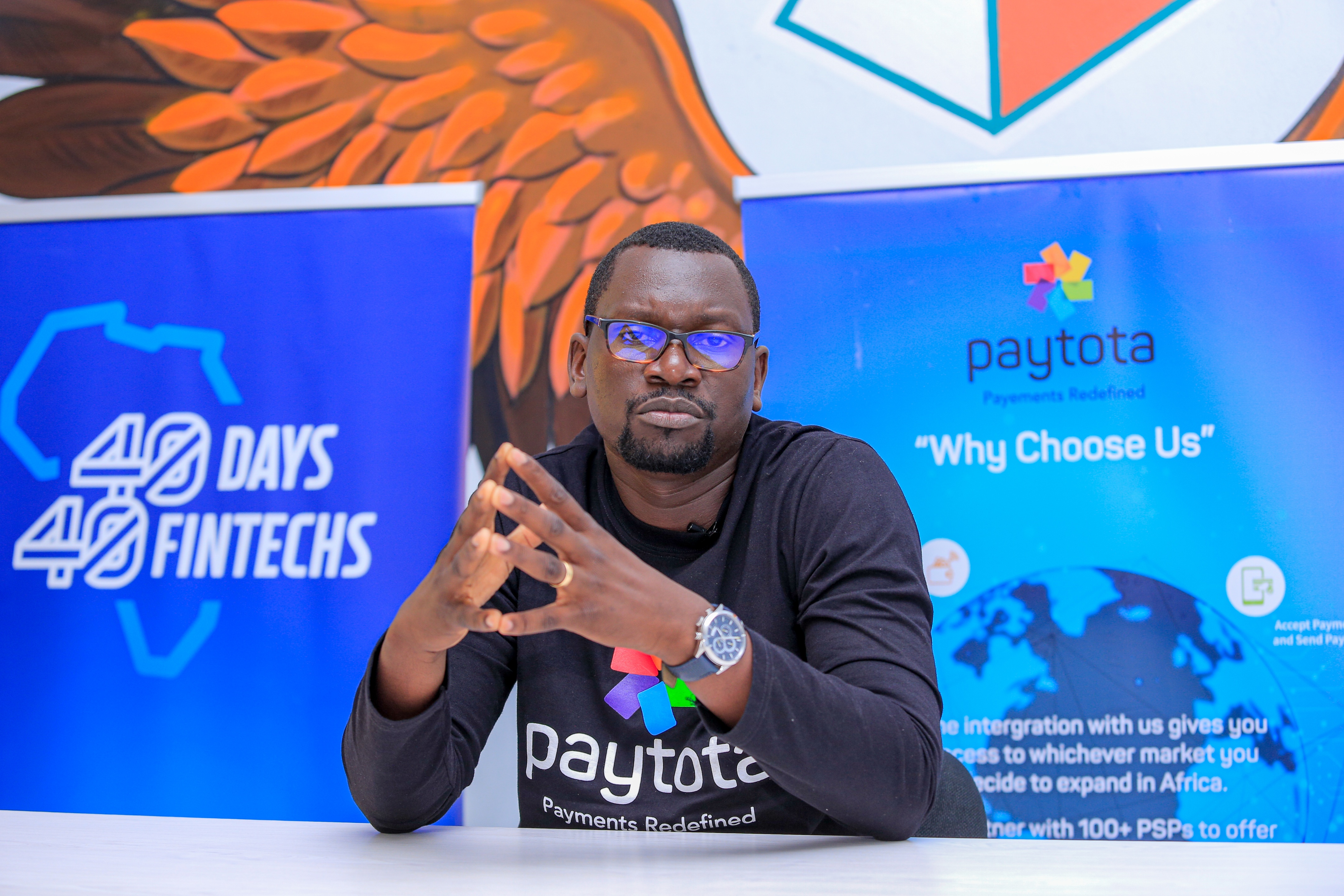
The world is slowly migrating into a cash-lite and eventually a cashless global economy where all transactions are done without the exchange of cash. As a result, more financial technology companies (FinTechs) are emerging with a variety of solutions to meet consumer needs.
However, most of these solutions target a fairly literate population that can at least read and interpret mobile phone prompts, leaving out the illiterate and blind population.
It is this problem that PayTota is determined to end with the introduction of an Interactive Voice Response (IVR) solution that allows its customers to interact with a computer-operated phone system through the use of voice.
According to Erasmus Okurut, the PayTota CEO and Co-Founder, while this product is already in use in more advanced economies, PayTota is proud to be the champions of this initiative in Uganda.
“Not everyone can read and operate phones. So, if we want to include everyone, this product is very crucial,” he says.
Pay Tota is a Financial Technology company that designs universal payment solutions with an emphasis on emerging markets targeting mainly insurance providers, e-commerce players, and agri- service providers, among others. They are the 33rd participant in this year’s 40 Days 40 FinTechs initiative that is showcasing impactful and emerging FinTechs across East Africa and beyond.
“We provide a unified payments interface for our clients. Being a Business-to-Business FinTech, we have been able to integrate more than 20 businesses in Uganda and five businesses outside the country,” Okurut says.
Okurut says this integration is facilitated by other payment methods including Google pay, Mobile Money, Visa and Credit Cards, etc, with monthly recurring revenue of more than USD 20,000.
He owes this success to the Covid-19 pandemic that prompted many businesses to reach out to them seeking digital payment services and solutions.
“Covid-19 was an awakening call. We were able to grow within the pandemic and also in terms of the impact, we saw many businesses take up PayTota solutions. In Uganda, we were able to receive over 100 players per month asking for our solutions,” he says.

For better client management, they have implemented different tools at the back-end, the latest being KYC onboarding, which is already being done to help reduce the timelines one needs to get on-boarded to the market.
Okurut highlights that although there are some regulatory challenges, FinTechs in Uganda are generally picking up faster, with more investors taking a keen interest.
“The market is ripe and now is the time to develop solutions that target consumer needs,” he says, before applauding the 40 Days 40 FinTechs initiative that has contributed a great deal in highlighting and exposing startups to the global economy.
“When we first featured on this platform, we were just a startup, but it gave us a platform and we were able to onboard over five clients because of that. Our brand visibility has improved,” he says.
40-Days 40-FinTechs
Now in its third edition, #40Days40FinTechs has quickly grown into one of the world’s premier showcase events for the innovations that are enabling ever more people to join the digital economy space.
That is surely going to remain the case, in large part due to the inspiration and collaboration that HiPipo partners Level One Project, Mojaloop, ModusBox, and Crosslake Technologies generate, but mostly because of the continuing generous support of the Gates Foundation.
The initiative offers participants useful tools and an introduction to the industry’s emerging technologies, such as Mojaloop Open Source Software, and guidance from Level One Project foundational material. The skills gained from this initiative cover Level One Project Principles, Instant and Inclusive Payment Systems (IIPS), Inclusive Finance, and FinTech in general.
According to HiPipo CEO, Innocent Kawooya, this year’s edition is cementing the achievements of the previous editions – where over 60 FinTechs have been transformed – but also building on them to leverage digital financial inclusion in East Africa and beyond.
“As HiPipo, our extensive effort and advocacy is partly for the intention of championing digital innovation and interoperable instant and inclusive payment systems (IIPS) in Africa to a point where our innovators enjoy and achieve sound profit margins to help them keep designing and deploying affordable and inclusive financial services for the poor,” Kawooya said.
